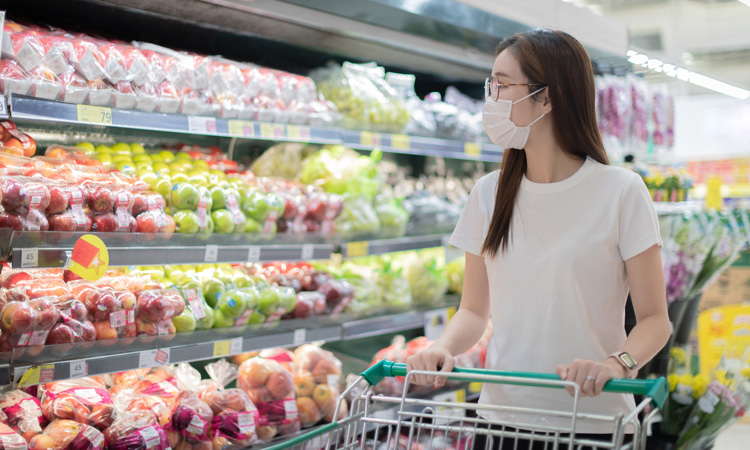Cost-of-living driving consumers in supermarkets, not sustainability
- Like
- Digg
- Del
- Tumblr
- VKontakte
- Buffer
- Love This
- Odnoklassniki
- Meneame
- Blogger
- Amazon
- Yahoo Mail
- Gmail
- AOL
- Newsvine
- HackerNews
- Evernote
- MySpace
- Mail.ru
- Viadeo
- Line
- Comments
- Yummly
- SMS
- Viber
- Telegram
- Subscribe
- Skype
- Facebook Messenger
- Kakao
- LiveJournal
- Yammer
- Edgar
- Fintel
- Mix
- Instapaper
- Copy Link
Posted: 21 April 2022 | Abi Sritharan (New Food) | No comments yet
New research finds that, although sustainability is important to many, the cost-of-living crisis has caused people to prioritise the price of items when making purchases.


New research from Levercliff – a food and drink consultant company in the UK – has found that the rising cost of living is impacting most of the decisions made at the supermarket till by consumers.
As a result of increased interest rates, tax, energy costs, and rising food and drink prices, the cost-of-living crisis is having a discernible impact. For 71 percent of consumers, value for money is the influential factor impacting product or brand choice, and rising prices are a top concern for 41 percent of people, in comparison to climate change being a top concern for just eight percent, according to the company’s research.
The research – which polled over 1,000 people in October 2021 and then again in March 2022 – found that when shopping for food and drink, for 36 percent of consumers choices are mainly driven by needing to stick to a budget; an increase from 24 percent in October 2021. These consumers focus on looking for the best value and offers. This is compared to only six percent of people who stated their choices are principally driven by whether products have been produced responsibly.
However, sustainability is still something many consumers take into consideration, with a lot placing high priority on the issue when it comes to doing their shopping.
Almost 50 percent of consumers chose sustainable food and drink packaging as a top priority, with key focuses on making all packaging recyclable (17 percent), reducing unnecessary packaging (16 percent), and eliminating plastic packaging altogether (15 percent).
In addition to this, reducing food waste to limit environmental impact is high on the agenda with 45 percent of respondents buying only what they need to cut down on food being wasted, whilst 39 percent eat more leftovers to prevent waste.
The research finds that the move towards plastic-free continues to be important to consumers, with 39 percent of people buying loose fruit and vegetables where they can.
“Brands can’t underestimate the impact of the current economic climate on consumers,” said Fintan O’Leary, Managing Director of Levercliff. “Over the relatively short period from October 2021 to March 2022, our data clearly shows shoppers are increasingly feeling pressure to make their money go further, and this is being reflected in buying habits across food and drink, with less of a focus on sustainability, and an increased focus on cost. Taking inspiration from this year’s World Earth Day theme of ‘invest in our plant’, we see a real gap in the market for solutions which both look after our planet and support consumers in their wallets. Further investment in sustainable packaging, or products with minimal packaging, is essential, and products being seen to deliver value for money will succeed across the board.”
Related topics
Food Security, Food Waste, Packaging & Labelling, Research & development, retail, Supermarket, Sustainability, The consumer









